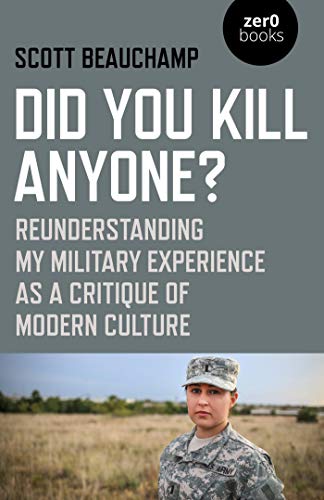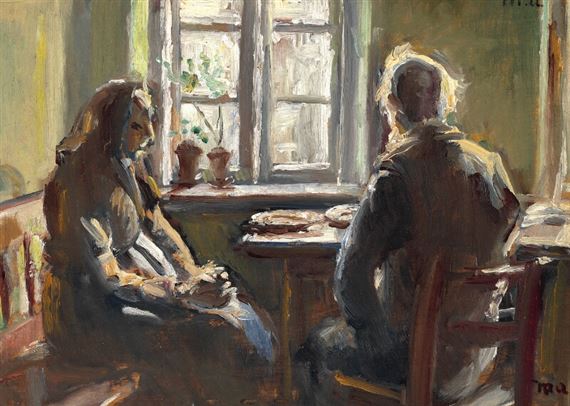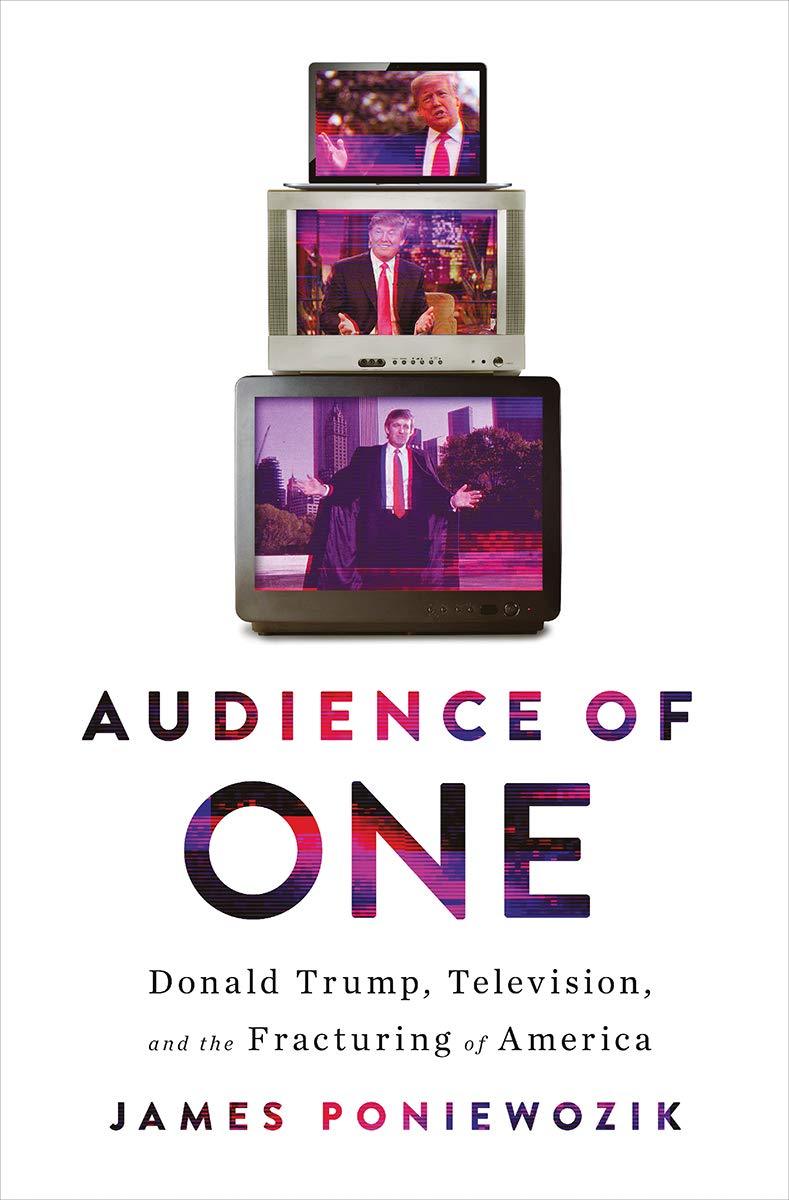
Did You Kill Anyone?: Reunderstanding My Military Experience as a Critique of Modern Culture, Scott Beauchamp; Zero Books, 2020, 144 pages
Scott Beauchamp is one of very few writers whose columns I always look forward to reading. Above all, this is because I can expect to be surprised: not because he is a self-conscious contrarian but because he is so curious about so many things. One never knows what to expect. A meditation on the work of T.S. Eliot? Perhaps. A history of the open plan office? Perhaps. A critique of AI-assisted personal therapy? Sure, why not.
"His curiosity, and literary grounding, make him an incisive analyst not just of army life but how army life stacks up against that of the civilian."
But the surprise is not just in the subject matter. One would not applaud the range of a musician whose rock, jazz and reggae compositions were uniformly bad. The surprise is in the depth with which Beauchamp can penetrate even as an unassuming a subject as disused shopping malls. You would never have guessed that you wanted to know about it. But you do.
Beauchamp’s overarching subject is meaning, so it was not a surprise to learn that his first book, Did You Kill Anyone, was dedicated to the subject to which he could bring the most unique insight: the American military. Other modern writers on war, like Sebastian Junger, have been reporters. Beauchamp respectfully thinks that their insight is limited, not because he doubts their courage and integrity but for the same reason that Jarvis Cocker doubted that the Greek arts student could become a “common person.” They have the option to leave. Beauchamp was an infantryman, serving in Iraq, in the post-9/11 years of epic absurdity.
Of course, experience has limits as well. In an Indian parable, blind men encounter an elephant and, gripping different parts, have different ideas about what beast they have encountered. One of the men grasps the trunk and says it is a giant snake. Another grasps a leg and says it is a giant pillar. Nonetheless, granting that I am someone whose only experience of violence has been in its briefest, most pathetic forms in playgrounds and in bars, Beauchamp’s reflections ring true.
This is down to several virtues of Did You Kill Anyone?. Like David Jones in one of his and my favourite books, In Parenthesis, Beauchamp is more interested in the poetry of war than the politics. The politics are important, of course, but in describing the experience of military service, Beauchamp is less interested in rights and wrongs than in boredom, and ritual, and camaraderie.
Second, like Jones, Beauchamp has a hawk’s eye for detail. Writing about the importance of cigarettes in military life, for example, he writes:
Both cigarettes and soldiers present themselves to the public in an orderly phalanx redolent of mechanical organization and factory-floor discipline. But behind the scenes, or behind the lines rather, soldiers and cigarettes can be found lounging in the disordered languidity of their own breath, the smoke of the cigarette mixing with the idle chatter of the soldier. The bodies of cigarettes soggy, bent and crushed in the pockets of soldiers who come to physically resemble their almost talismanic objects as combat wears on.
This is beautiful stuff, not just isolating a detail but teasing out its poetic significance. It is a sign of great prose when a reviewer is tempted to fill his piece with quotes.
A third merit of Did You Kill Anyone? is that Beauchamp is not just interested in the military as a self-contained phenomenon but in how it relates to life. Perhaps I am being simplistic but it strikes me that this might be due to his perspective being that of someone who was on the inside looking out, and not on the outside looking in.
His curiosity, and literary grounding, make him an incisive analyst not just of army life but how army life stacks up against that of the civilian. Beauchamp does not romanticise the hierarchy, and discipline, and tribalism of the military, but does ask why the purpose, and ritual, and belonging he found in uniform cannot be found elsewhere. On returning to civilian life, Beauchamp writes: “…you’re made to sort through all the war experiences that people tell you are responsible for your dissatisfaction. You’re told that it was the war itself which wrecked you and not your return to the commodified world, shallow and brutal as it is.”
Naturally, one is sure that soldiers can be traumatised by fear, and horror, and regret, but I think many civilian readers, this critic included, will experience a twang of guilt upon appreciating how much we exoticise soldierly pain through the lens of Wilfred Owen poems and Full Metal Jacket. It is hard to believe that our world, and not their world, could be more depressing. But it can be true.
Granted, this seems in part like an inevitable feature of transitioning from army to civilian life. I am sure that soldiers have felt bored and alienated on returning to “normal” existence since the first time men returned from war. They lose brothers and return to communities that have moved on without them. They lose military routine and the thrill of risk. They lose some of their identity and have to find new purpose. No amount of civic ritual and belonging, I suspect, could avert some disorientation and listlessness.
It is also impossible to be entirely apolitical about the underwhelming nature of demobilisation for the modern soldier. Troops returning from a war should be celebrated; hailed as heroes; recognised as proud guardians of a nation. The brutal futility of recent American and British wars, though, which have been waged on baffling premises and done tremendous damage both to the invaders and to the invaded, have robbed soldiers of their celebration. The United States rightly has a tradition of respect for the young people who sign up to fight for it, but the morbid nature of its struggles in Afghanistan and Iraq has made this extension of respect more sober and muted than it should have been. This, as well as more obvious forms of suffering, makes them betrayals of the troops. They did not choose which wars to fight in.
Yet even with those qualifications made, Beauchamp has a substantial critique. Ritual in civilian life, he writes, is mostly “denuded of [its] metaphysical coherence and inflected with a destabilizing sense of irony.” In the military, meanwhile, at the last field exercise of their training, Beauchamp and his fellow trainees were asked to sing the Infantryman Song and recite the Infantryman Creed. He writes: “The song and creed were not perfunctory. They took on the power of incantation, simultaneously affirming our new status as infantrymen and conjuring some concrete collective manifestation of our identity.”
Does this sound a little cultish? Quasi-fascistic perhaps? The modern critic might squirm an inch further into his seat when Beauchamp adds: “We hadn’t just died to our former civilian lives during basic training. We had also died to the notion that individuality trumps all.”
Feeling uncomfortable? Well, it is worth remembering that only in such a rich and compartmentalized society as ours are individuals not forced to recognise this. Subsuming one’s identity, at least to some extent, into that of the collective is not the invention of fundamentalist religious sects or modernist totalitarian movements. It has been necessary for our survival. Perhaps one can draw a comparison with fire. Fire, under the wrong conditions, can be a source of terrifying destruction. Fire that is overanalysed and interfered with, however, can splutter out. Only with the right balance of care and spontaneity is it a source of heat, and light, and mystical pleasure.
Beauchamp enjoyed the brotherhood of the armed forces. He writes: “A community is how you are useful to each other, how you help each other to survive. Who you are develops from that. It doesn’t work in the reverse. According to Nisbet, it can’t. Because a group of people who declare themselves a community without being essential to each other aren’t a community at all.”
Of course, soldiers are not actually essential to each other. If they were, they would make up a weak and vulnerable army, unable to cope with the losses of war. No matter. Let’s replace it with “significant.” The sense of being significant has weakened, ironically, in our individualistic times, as family ties and labour markets have loosened. People feel compelled to make something of themselves, precisely because they are not “something” by their very nature. Those of us who might be broadly termed “post-liberal” can talk of “community” as if it is a spiritual virtue to be conjured up. But as Beauchamp says, it is a spiritual virtue that arises from material facts. We have to be important to each other, in our work, and in our neighbourhoods, and in our lives, before we can feel important to each other.
If some of Beauchamp’s critiques of modern life feel a little overstated, that can be explained by the unfortunate fact that he chose to move to Brooklyn. As he says, “It was a much more dramatic change for me to go from the Army to Brooklyn than it was to go from Missouri to the Army.” So, he contrasts the democratically mundane small talk of Missouri with the maze of references that Brooklyn conversations stumble through. But of course all friendships contain private language. The problem is when that private language is built entirely on references to shared tastes and not shared experiences, and, especially, as he found in Brooklyn, when it becomes not a means of communion but of elite signalling. A friend and I have conversations that are dense with references to professional wrestling, which we both love, but we would not claim to be smarter, cooler and more sophisticated than other people because of our knowledge of five star Ric Flair matches.
One episode the reader might wish they could hear more about is the curious episode in which Beauchamp wrote pseudonymous war diaries for The New Republic which were alleged to have contained fabrications. Beauchamp disputed this, despite being thrown under the bus by the army and the magazine, and later pointed out that the Company First Sergeant who was key to the investigation against him went on to be arrested for executing prisoners. It would have been interesting to hear more about this event, not in the interests of mere scandal but for what it says about the armed forces as a bureaucratic machine, and about how conflict can brutalise young soldiers, but Beauchamp does say “its proper treatment would demand a book all of its own.”
Beauchamp does regret his dairies, because he thinks it was dishonourable to write about the “profoundly personal” experiences of his fellow soldiers as the war was being waged. In the final chapter of Did You Kill Anyone?, he addresses the concept of honour. We praise people for being true to themselves, but Beauchamp writes that being honourable often depends on overcoming yourself to be true to something else. He tells of riding in a Humvee in Iraq with an officer when they encountered a dead body in the road:
It was incumbent upon him to get out of the vehicle and take charge. But he paused. He hesitated. The moment lasted much longer than it should have, and in that pregnant expanse of time, it seemed as though the officer went through Sloterdijk’s entire process of self-shame. He was afraid and disgusted, then disgusted with himself. He let out a feeble, “Well, I suppose I should get out there…” Followed by another moment of renewed self-loathing. But somehow, in that space, he gathered the courage, the thumos, to harness his honor, leave the Humvee and walk over toward the American troops gathering around the body.
An officer’s honour is worth more than an author’s, of course, but there is some honour in how Beauchamp avoids the easy answer, and the marketable theme, and the instinct towards valorizing one’s experiences. Despite his own expansive curiosity, he also does his duty to his theme, and has produced a focused, rich, beautiful book.

